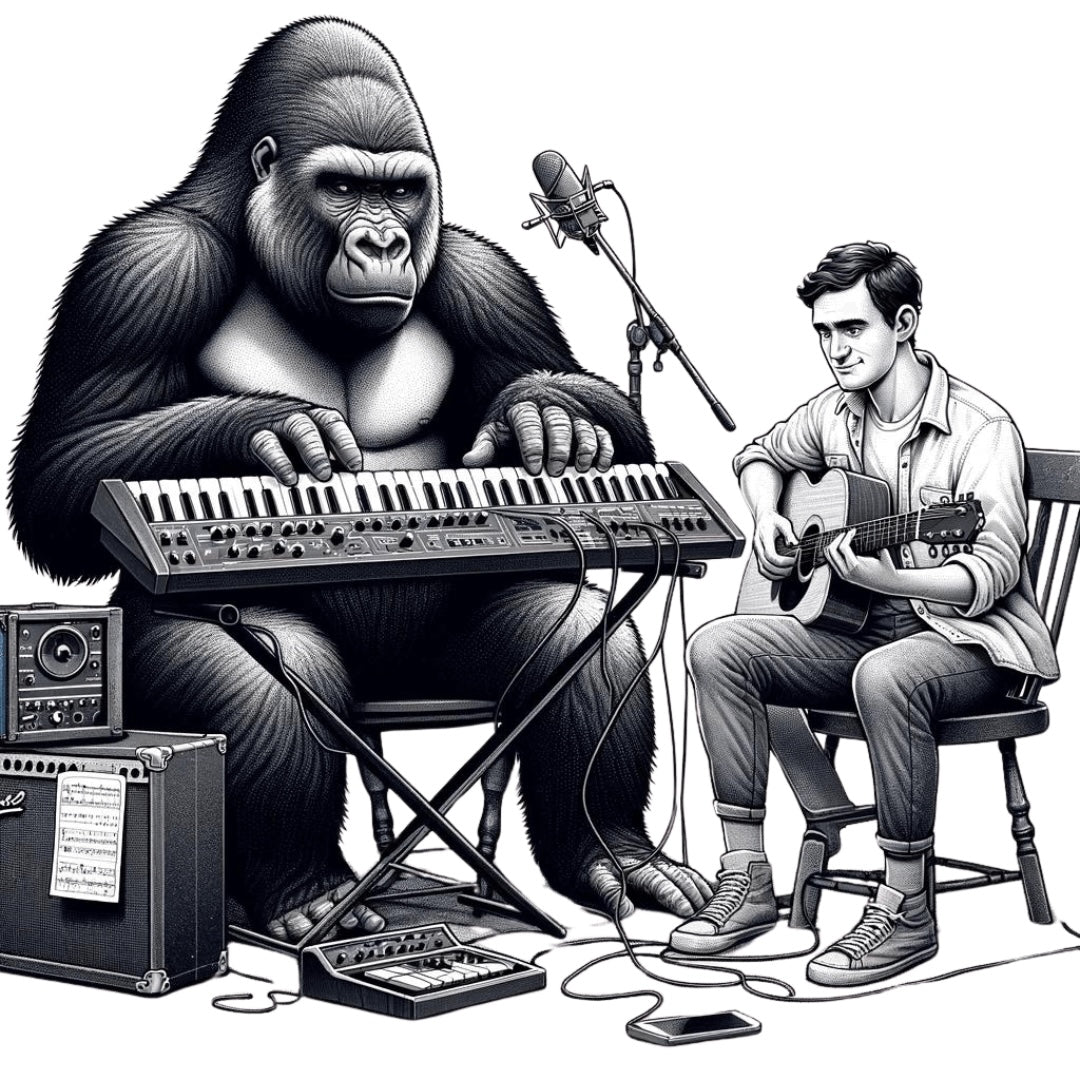Can profitability and artistic authenticity coexist harmoniously?
Written by Pete Armitage
It’s a culture that we take for granted - we support our favourite artists by going to see them live or buying their records - funding them. It affirms the experience of our consumption and approval of their work. In order to truly engage with the work and have the optimum experience, we buy.
There is just an undeniable allure for material, even within the realms of music. For musicians to be able to express themselves properly they probably have to sell their wares, in order to pay for distribution, in order to pursue their career. It’s self-evident but it can be argued that in order to actually maintain artistic authenticity we have to also strive to make a profit.

Even the most antiestablishment of electronic artists sell merch, Underground Resistance tees are a common sight in Kreuzberg. Berghain recently bumped up their entrance fee to 18 euros, by no means a socialist price tag for a club that reputedly pays DJs the same fee per set regardless of what they usually charge. Ultimately, they’re all capitalist institutions chasing profit, operating within a market system.
But perhaps the commodification of art has led us to undervalue it. A commodified artwork comes about when its creator simply asks the question, how can I get people to invest in me?’ This is not so much an ethical quandary - of course artists need to be able to pay rent and put food on the table like anyone else, this is a justified need. However, some thinkers suggest that their work will suffer indelibly if it is created in pursuit of the sale. To borrow a quote from Orson Scott Card’s novel Prentice Alvin1, ‘He had come to work for what the fee could buy, and not for the joy of the work itself.’
The magic of art is its unfettered representation of one’s consciousness, a pure and lucid process of expression unshackled to the neuroses of our self-help, ego-driven capitalist society. In authentic creations we gain a precious glimpse of the remnants of our true selves. Of our humanness, otherwise obscured by the entanglement of vacuous technology and status anxiety that demands our attention most of the time.

Put simply, we will struggle to tap into the truth if we are contaminated by the inadequacy bred by materialism.
Andy Warhol’s ‘artistic mechanisation’ reflected in the pop art style he pioneered is now ubiquitously recognised as emblematic of the 20th century period. Without explicitly denouncing capitalism nor questioning it, his creations seemed to acknowledge that capitalism is indeed vile, albeit universally understood. Branding and advertising is something we can all identify with, and thus it can project a beauty of sorts accessible to all. Warhol depicted the fabric of his society at the time - he employed symbolism in a manner all could understand in order to teach us something about ourselves, promoting our self-awareness in the process.
Warhol’s art was intrinsically commercial - he acknowledged and cleverly delineated the profitability that other artists sought to circumvent. Warhol realised this was impossible, accepting an ideological vacuum of sorts and arguably created pieces of great authenticity by distilling his surroundings; captioning consumerism into simple prints depicting iconic people and products of the time, e.g. Marilyn Monroe and Campbell’s Soup Cans.
However, one can also contend that capitalism is responsible for the dramatic rise in living standards over the last two hundred years. The creation of new infrastructures thanks to technological advancement have meant that less have to perform repetitive and dangerous work. Agriculture was the first major sector to reflect this change. In 1871 6.6% of the workforce of England and Wales were agricultural labourers. Today that stands at 0.2% - a 95% decline.

Truthfully, competitive, market-driven capitalism has led to people living longer and having more free time, to make art, supporting the notion that profitability in a macro sense actually yields a net increase in the amount of art, the accessibility of art, and thus authentic art as a result.
Arguing that profitability and artistic authenticity cannot coincide belies the twisted belief that artists must be non-conformists. That they must rebel against the dominant socio-cultural order regardless of its nature. Surely this is a reductive notion of artistry? Our perceptive and deductive faculties are not necessarily exercised by unconditional non-conformism. Surely art functions at its highest level when it is raw and unadorned, without needing to be reactionary.
Another argument is that the capitalist model encourages the manufacturing of products which appeal to the lowest common denominator. The overarching goal is to sell to as many units as possible, to achieve maximum profit, to appeal to as many people as possible thus diluting individualism in the process. Many producers can relate to this, it's just part and parcel of making good dance music to think about the dancefloor rather than ‘indulging’ in an idea in disregard of the listener, which may yield a deeply authentic work but sound like garbaggio.
How about streaming and digital download services? They have undoubtedly commoditised music - we can all relate to that moment on Spotify when we just don’t know what to listen to. We have instant access to most of the popular music released in the last 50 years, begging the question, what mood am I in? It all feels very fickle, and breeds a desire for instant musical gratification, which surely detracts from the process of listening itself.
This paradox of choice as popularised by psychologist Barry Schwartz2 has a similar effect on our psyche to the constant bombardment of advertising we experience everyday (according to this study, 4,000 to 10,000 a day for most Americans). Schwartz argues that it can lead to less satisfaction, and even paralysis.
Producers and musicians are aware of this and their output is obviously affected as a result. How can we capture the listener’s attention in the first 20 seconds when they’re skipping through hundreds of tracks in a session? How can we make the track instantly stand out? How can we appeal to the playlist makers at Juno?
Perhaps flawed systems such as capitalism can only be brought down from the inside.
Art can be authentic whilst being commercial.
But if art is made with the raw intention of marketisation and profitability, it will probably be rubbish.
- Orson Scott Card (1989) ‘Prentice Alvin’ Tor Books, (ISBN 0312931417)
- https://www.aei.org/economics/political-economy/dont-tell-bernie-sanders-but-capitalism-has-made-human-life-fantastically-better-heres-how/
- http://www.concrete-online.co.uk/what-is-capitalism-doing-to-art/
- Barry Schwartz (2004) ‘The Paradox of Choice – Why More Is Less’ Harper Perennial, (ISBN 0060005688)






